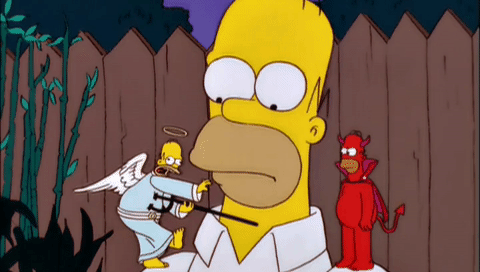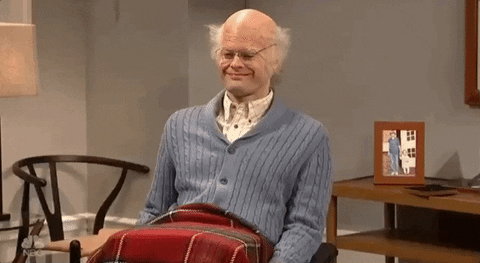Fresh off our joint TEDx talk, my brother and I are doing a free live workshop tomorrow Thursday, May 30th at 9AM EDT / 1PM GMT - we’re going to teach you how to prep for a presentation and speak like a pro. RSVP here.
Also make sure to click the heart above, the algorithm really likes it when you do that 😏.
If you want to live to be 101, what's your recommendation?" Dan asks.
"Always have fun," Umeto replies with a chuckle, as if the concept of aging amuses her. "Don’t get angry. Have fun with everyone. Make everyone happy."
Dan looks bewildered. "So the key is to be easygoing, to not let things upset you, and to forgive quickly?" he probes, hoping to capture the essence of this simple wisdom… perhaps a little too simple?
The translator almost smiles with her words "This laughter, it brings us longevity."
Dan nods, feeling the weight and the lightness of her words. "Oh, I love that. I feel it."
This is the opening scene of the Netflix docuseries Live to 100: Secrets of the Blue Zones. It’s a show Bianca, marketer extraordinaire, put me onto after I finished watching Succession (which is about the opposite of levity).
In the series, Dan Buettner, an American author, explorer, and longevity researcher, travels to the serene landscapes of Okinawa. He's on a quest to decipher the secrets of longevity from the island's oldest residents.
I think it’s no coincidence that the first piece of advice in the very first episode revolves around laughter. It’s a universal language of joy that transcends cultures and generations, and according to Umeto Yamashiro, it’s the cornerstone to longevity.
Various studies affirm what Umeto has known intuitively.
Research published in the American Journal of Lifestyle Medicine suggests that laughter can reduce stress hormones, increase immune cells, and trigger the release of endorphins, the body's natural feel-good chemicals. This isn't just a recipe for a happier life but a healthier one too.
A Norwegian study found that people with a strong sense of humor outlived those who don't laugh as much (the difference was particularly notable for those battling cancer.) It appears that laughter might just be the most enjoyable form of therapy.
I could go on. But for every study that says X is good for you, there’s another study that says it’s also bad for you. Coffee is both good and bad. Red wine is also both good and bad. Even something we assume is all bad could be good, like eating ice cream for breakfast (so feel free to read this with a milkshake).
Among all of these conflicting studies, I have yet to find a study that suggests laughter decreases longevity (unless you count the very rare instances of supposed “death by laughter.”
This is something we intrinsically know of course, the thought itself is almost laughable (get it?)
So why is it that I rarely see people walking down the street laughing–good for you–but there’s an army of Starbucks cup holders every hour of every day–both bad and good for you?
Is it because you can’t put laughter in a cup with your name on it? Or is something else going on?
I want to point out an essential distinction here.
The goal is not to just tick more years off the calendar. If that was the case then we'd all be gulping down vitamins (that may also be good and bad) and signing up for silent retreats. And yet most people don’t do either (though I would say a silent retreat does sound good to me as an introvert).
It’s not just about adding years to your life, but adding life to your years.
This quote has turned into such a cliché that grandmas worldwide have officially retired it from their pillowcase embroidery repertoire.
But that doesn’t stop it from being true.
Stephen Jenkinson made this incredible point in his book, Die Wise - while medical advancements have indeed extended our lifespans, they often leave us navigating a prolonged twilight of life without quality.
We've gotten very good at keeping people alive longer, but for what?
It’s like being given extra time at a party that stopped being fun hours ago.
Ultimately it’s less about the mechanics of longevity and more about the art of living. Laughter isn’t just a temporary lift—it’s a philosophy, a way to approach the world that lightens every load and brightens every day. It might just be the most enjoyable health plan out there (and it doesn’t matter what insurance you have).
And since we're already on a morbid tone... 🙂
According to Bronnie Ware, the author of The Top Five Regrets of the Dying, the 5th most common regret of the dying is - "I wish that I had let myself be happier."
Note: you know what’s NOT on the list? “I wish spent more time on social media.”
This reflects a universal truth that happiness is a choice and often, we deny ourselves this choice due to habits, patterns, misplaced priorities, or feelings of helplessness
It's a simple truth, some may even say, too simple - happiness is a choice.
Yet, we often end up choosing against our own joy without even realizing it. Our daily habits and routines, the must-dos and supposed-tos, can trap us in a cycle that feels safe but doesn't really satisfy us.
Choosing happiness, and yes, longevity, isn’t about grand gestures; it’s not about going to stand-up shows and watching romantic comedies (although they do help) - it’s about the small decisions we make every day that add up.
It’s about choosing not to get angry. It’s about having fun with everyone. It’s about making everyone happy. It’s just like Umetto said, “Always have fun.”
(an)drew
PS. My brother and I have a TEDx talk coming out that we’re really proud of. We want it to get a fair shake from the algorithm so we’re creating a launch team to help when the talk comes out (sometime over the next month or two). If you’re willing to help out, click here to find out more details.
PPS. Related, friend and fellow humor speaker, Paul Osincup, gave a great TEDx talk on why you should take yourself less seriously.










Yesss I loved that docuseries ❤️
Listening to your voice-over I was thinking about the happiest person I know (my wife's best friend) she is such a genuine joy to be around. Which is not the the same I can say about most people, not even myself.